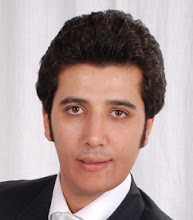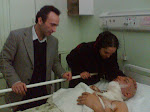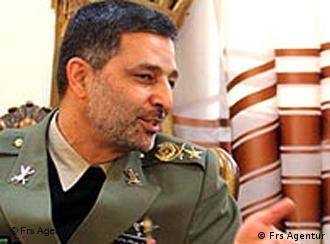Ayatollah Khamenei Comments at the Elm-va-San’at University

Ayatollah Khamenei’s presence at the Elm va San’at (Science and Industry) University, was announced earlier, was so unexpected that some conservative media outlets received news of the visit after the event. Iran’s supreme leader, who had cancelled his Saturday’s visit to the University, came to the school after an eight-day delay to once again declare his support for President Ahmadinejad among people who were brought to the forum since the morning and from outside the university.
Although in early December President Ahmadinejad’s Science Minister had announced that ayatollah Khamenei would be visiting the University on December 7 which is commemorated as Student’s Day in Iran as a step to “thwart conspiracies of certain anti-revolutionaries,” the meeting was cancelled and, contrary to the expectations of those who thought that Khamenei would instead visit the University of Tehran, he in fact did visit the Elm va Saanat University, where Mahmoud Ahmadinejad had studied thirty years ago and lectured for some time as well.
This issue became the pretext for the leader of Iran to dedicate a portion of his speech to supporting Mahmoud Ahmadinejad. Defending Ahmadinejad by calling him a “revolutionary, committed, effective, active and courageous” individual, ayatollah Khamenei said, “The revered and timeless symbol of the holy defense [referring to the 8-year Iran-Iraq war] Hajj Ahmad Motevasselian as well as our revolutionary, committed, effective, active and courageous President are among the prominent symbols of the Elm va Saanat University’s alumni.”
This follows a series of instances in which ayatollah Khemenei has expressed his support for Ahmadinejad’s administration. Three months ago, coinciding with Government Week, when some politicians pointed to the country’s tumultuous economic conditions and criticized Ahmadinejad and his administration’s policies, Khamenei publicly expressed his support for the administration during a meeting with cabinet members and accused critics of “opposing the Islamic Republic regime.”
Yesterday’s speech by Iran’s leader at the University was important in another respect as he introduced his desired next president during the speech.
In recent weeks, with increasing criticisms of the ninth administration’s performance surfacing, conservatives, who are the administration’s main proponents, have announced plans such as forming a national unity government to perhaps pass over Ahmadinejad in that way. Nevertheless, yesterday’s speech by the supreme leader in support of Ahmadinejad nullified any such plans.
In his speech yesterday, Khamenei also sent messages to reformists, especially figures such as Khatami who are considering whether to run for the presidency next year or step aside. According to the supreme leader’s office, without referring to any by name, the Khamenei called for courage and self-confidence among officials in “making clear the principles that constitute the regime’s identity,” adding, “If one day, among the country’s officials we find weak and impotent officials like Shah Sultan Hussein [an Iranian King under whose rule the Afghans invaded the country’s capital], the era of this country and the Islamic Republic is over, because weak and impotent officials turn courageous nations into weak nations.”
In a part of his speech, Khamenei apologized to students for being ill and having a weak voice, saying to them, “Although I have been feeling ill for a few days, I did not want to delay this meeting; I was eager to be present among you, students.”














